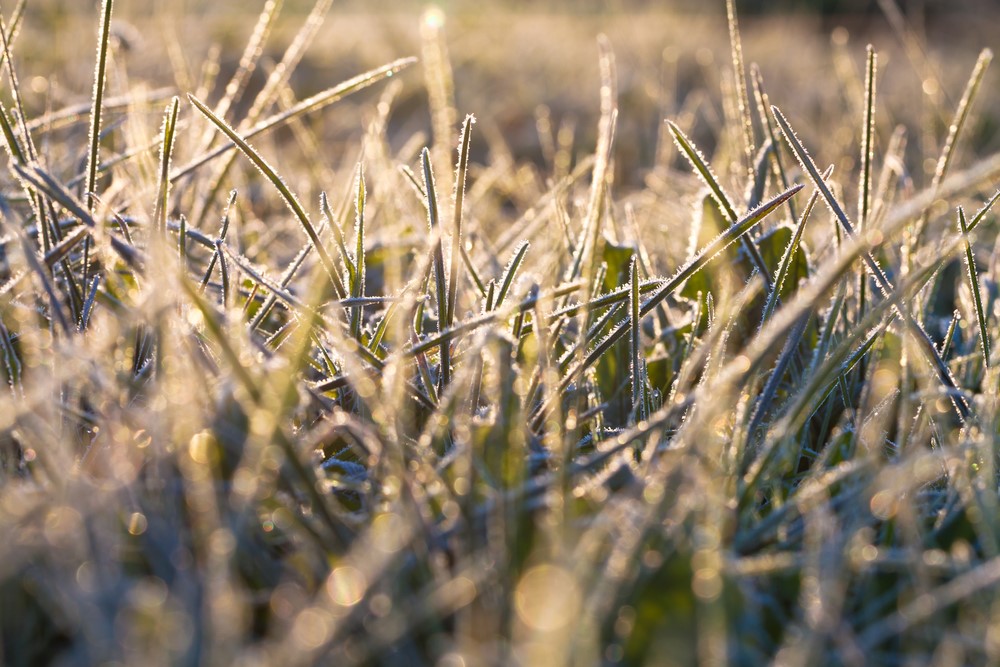Winterize Your Grass Without Harmful Chemicals
10/27/2016 5:00:00 AM
Written by: Erin Vaughan, modernize.com
Fall is in full swing, and that means plenty of crisp, beautiful days, amiable weather, and a chance to get outdoors before chillier temperatures arrive. And it's the best time of the year to set yourself up for a luscious carpeting of grass throughout the colder weather and into the spring.
Unfortunately, winterizing fertilizers and other non-organic products contain dangerous chemicals, like ammonium sulfate, ammonium phosphate, and ammonium nitrate, which can boost the acidity in your lawn to harmful levels. And when over-applied, inorganic fertilizers can burn or damage plants—just when they need your help the most.
There are other options, but you'll need to use them with caution. Organic fertilizers, like manure, can't match the precision of processed fertilizers, so you'll have to be prepared to do a little homework before putting them down. Here's what you need to know.

Understanding Your Grass: Cold-Season Versus Warm-Season
A lot of homeowners new to lawn care make a fatal error in their winterizing. The source of the problem lies in not understanding the kind of grasses they have in their lawn, and how their needs differ.
It's all too easy to go to the nursery or hardware store and just pick out the first bag with a "winterizing" label on it. But if you live in the South, where Bermuda, Saint Augustine, zoysia, and centipede grasses flourish, these products may contain the exact opposite of what you need for your lawn. Specifically, they leave out the nitrogen so necessary to productive grass growth, and boost potassium, which usually isn't required at this part of the growing season.
Test Your Lawn: A Must for All Grasses
Putting down any sort of nutrient without testing your soil first is sort of like playing Russian roulette with your lawn. In fact, if you've been applying nutrient-dense compost all growing season, you may not even need to do much of anything at all.
And soil composition is a finely tuned science—so if you go overboard on one mineral or the other, you can end up burning your grass or harming your lawn. The big three required by lawns are nitrogen, phosphorous, and potassium—all of which you can get from organic sources like bone meal, chicken manure, or kelp meal. A soil test kit, which can be purchased from a local hardware store, can let you know both the pH of your lawn and what nutrients it may be lacking.

For Cold-Season Grasses: Add Nitrogen to the Soil with Bone Meal
Bring up the merits of either inorganic or organic fertilizers, and you're sure to hit a nerve among growers in the know. Even expert horticulturalists disagree about which is really better for your soil.
However, according to the Colorado State University Cooperative Extension, the problem seems to lie in a misunderstanding about commercial test results. Fertilizer manufacturers perform trials almost exclusively on warm-season grasses, which means many fertilizers get billed as "winterizing" when they may contain few to little of the nutrients cold-season grasses, such as Kentucky bluegrass, perennial ryegrass, tall fescue, and fine fescue, need throughout lower temperatures. They have high proportions of phosphorous and potassium, which helps older plants flourish, but doesn't do much to nourish tender young sprouts, which require more nitrogen to do well.
A nitrogen-rich organic fertilizer, such as bone meal, blood meal, or even just plain manure applied to your soil will do your cold-season grasses good. These kinds of slow-release nitrogen fertilizers are especially useful if you have very sandy soil in your area—fast-absorbing inorganic nitrogen can leach through soils and get into drinking water. Always read the instructions when you apply any fertilizer, and make sure not to overdo it. Organic fertilizers may be less processed, but they can still be harmful to your plants in high doses.
For Warm-Season Grasses: Add Compost in the Late Spring
Unless your tests produce results to the contrary, most warm-season grasses do not require extra fertilization to winter over. These species become dormant in the winter, so they do not need to be encouraged to send up new growth at this time of year. A better option is to wait until warmer weather arrives, then spread nutrient-dense organic compost on your grass regularly throughout the spring and summer.
Soil composition can be tricky sometimes, even for advanced ecologists. But the more you study your lawn, educate yourself, and observe the effect your efforts have on your grass, the better prepared you'll be to survive the cooler weather. Bring on the winter!
About the Writer

Erin Vaughan is a blogger, gardener and aspiring homeowner. She currently resides in Austin, TX where she writes full time for Modernize.com, with the goal of empowering homeowners with the expert guidance and educational tools they need to take on big home projects with confidence.
For more information about Ariens Company, please visit our corporate site at www.ariensco.com.